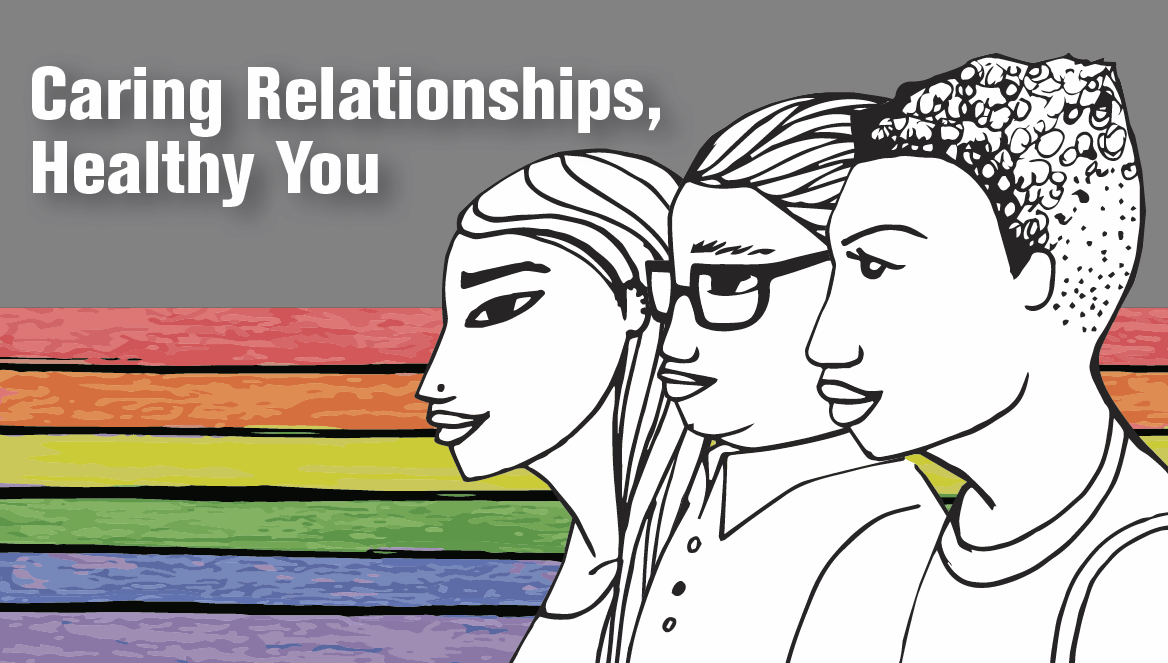FUTURES Has a New Resource That May Work For You!

When I first met Ari, we were freshman in college- bright eyed and ready for a big adventure. We were excited about our first tastes of adult life- whatever we thought that meant.
Ari was excited to move away from her hometown to the San Francisco bay area, where she thought she could finally connect with a community, and maybe even meet a cute girl. She was so inspired to do this that she created a Pride club on our campus.
But by the end of our freshman year we had both changed tremendously, and much of the light inside Ari had been extinguished. So much of that change can be attributed to the cute girl she did end up meeting, Kate*.
Kate was not in a good place in her life. She was suffering from an untreated mental health concern and a drinking problem. Unfortunately, Ari was the type of person who thought she could help anyone, and definitely wouldn’t give up on someone she loved. This left Ari vulnerable, and she eventually became Kate’s emotional punching bag.
Because of the weight of this emotional abuse, Ari’s confidence suffered, and she became depressed. She couldn’t get the resources she needed, and she found it unbelievably difficult to leave Kate without leaving the entire city. She ended up withdrawing from our university and moving back home.
Ari is not alone, even though she probably felt like it. Unfortunately, the LGB community experiences intimate partner violence at rates higher than the general population. According to CDC data, 35% of heterosexual women experience rape, physical violence, or stalking by an intimate partner, but this figure is much higher from lesbian women (44%) and bisexual women (61%).
There are not enough resources available to help LGBTQ people like Ari, but there are great organizations who do work hard to bridge this gap. FUTURES chose to take part in this effort by working with The Northwest Network, the Gay & Lesbian Medical Association, and FORGE, to create mindful Transgender/Gender Non-Conforming and LGB specific health cards that can be used to identify an abusive or unhealthy LGBTQ relationship, and provide useful resources for seeking help.
Today, Ari is in a much better place- because she was finally able to connect with organizations and resources that could help empower and heal her. She now lives in LA, and works for the Los Angeles LGBT center to help other LGBTQ youth find their voice. She specifically works on a program called “CAN” which stands for the Community Action Network, and shared a bit of her experience,
“Being a member of CAN has been a beautiful journey that has strengthened my love for LGBTQ activism, created fulfilling relationships, and positively impacted myself and the world around me. Helping and supporting youth is special to me because it’s something I wish I had more of when I was younger. Doing educational workshops and trainings for adult and youth allies can be just as rewarding because it starts an important conversation that doesn’t happen as often as it should. I am an avid believer that education and awareness is the first step towards change and I am grateful to have found CAN and be doing just that!”
The organization Ari works for, the Los Angeles LGBT center, actually partnered with us in designing our Trans and LGBT specific health cards. We hope these cards aid medical professionals and other activists like Ari in helping youth escape violent and unhealthy relationships.
If you are an LGBTQ and/or GNC individual and believe you may be in an unsafe environment or an abusive relationship, please reach out to these resources: National Domestic Violence Hotline 1-800-787-3224; The Trevor Project 866-488-7386. Additionally, FORGE offers safety planning for transgendered survivors on their website here.
*Names have been changed to protect privacy





